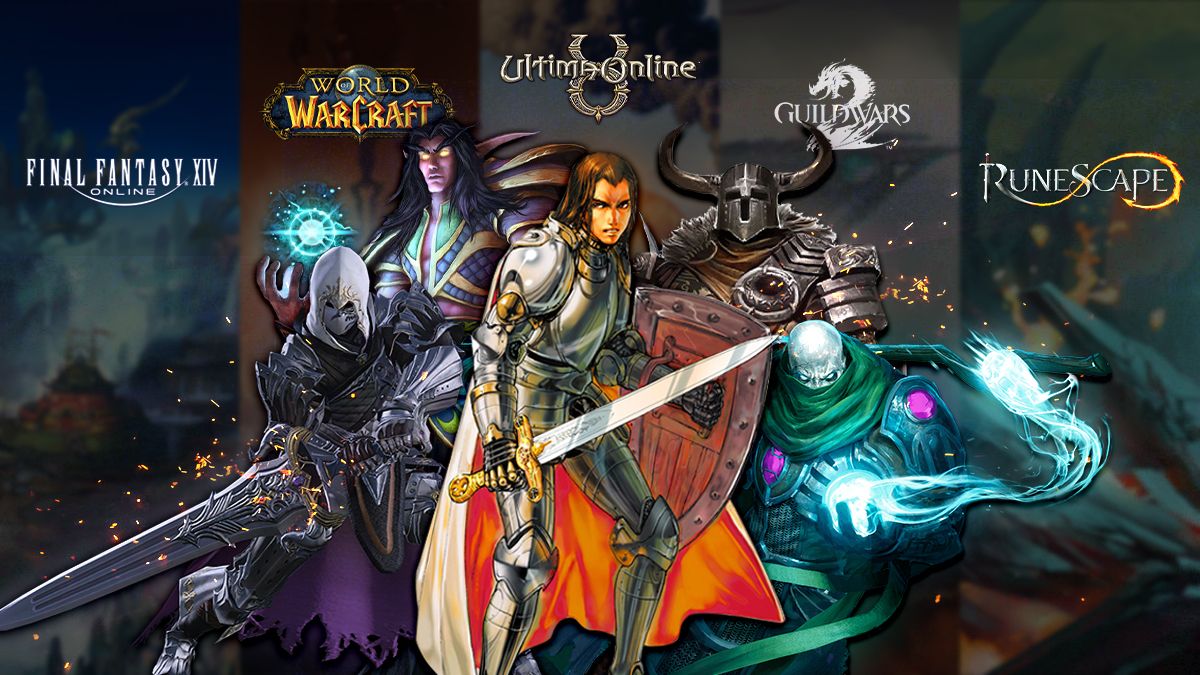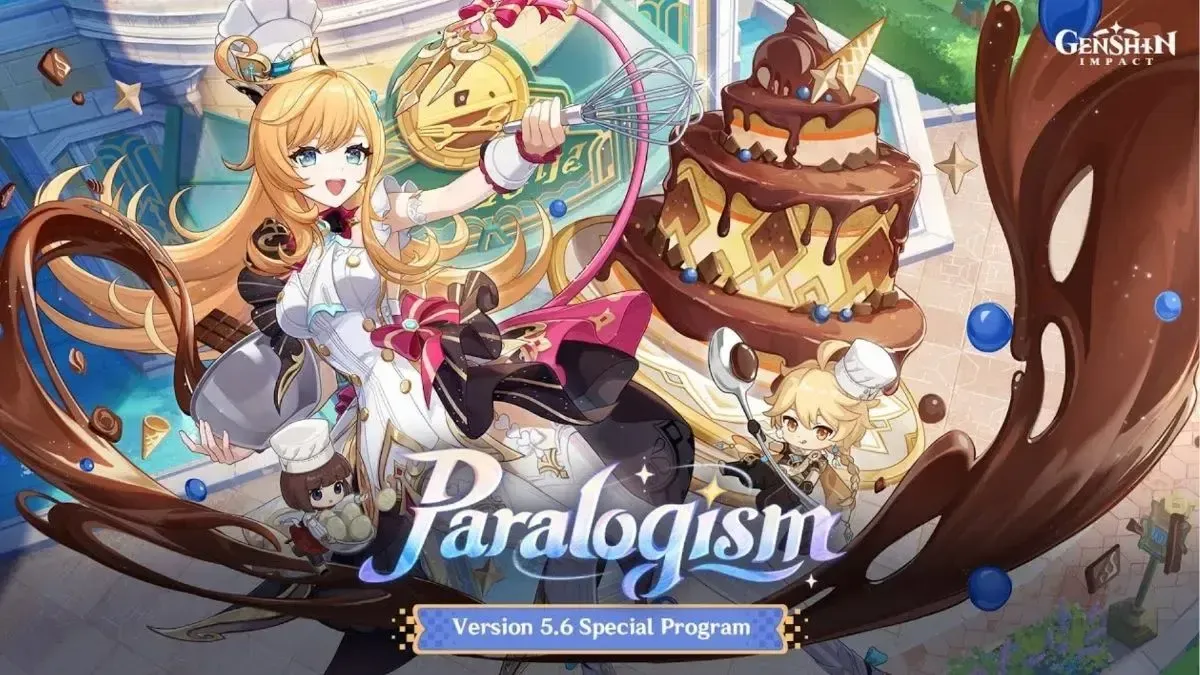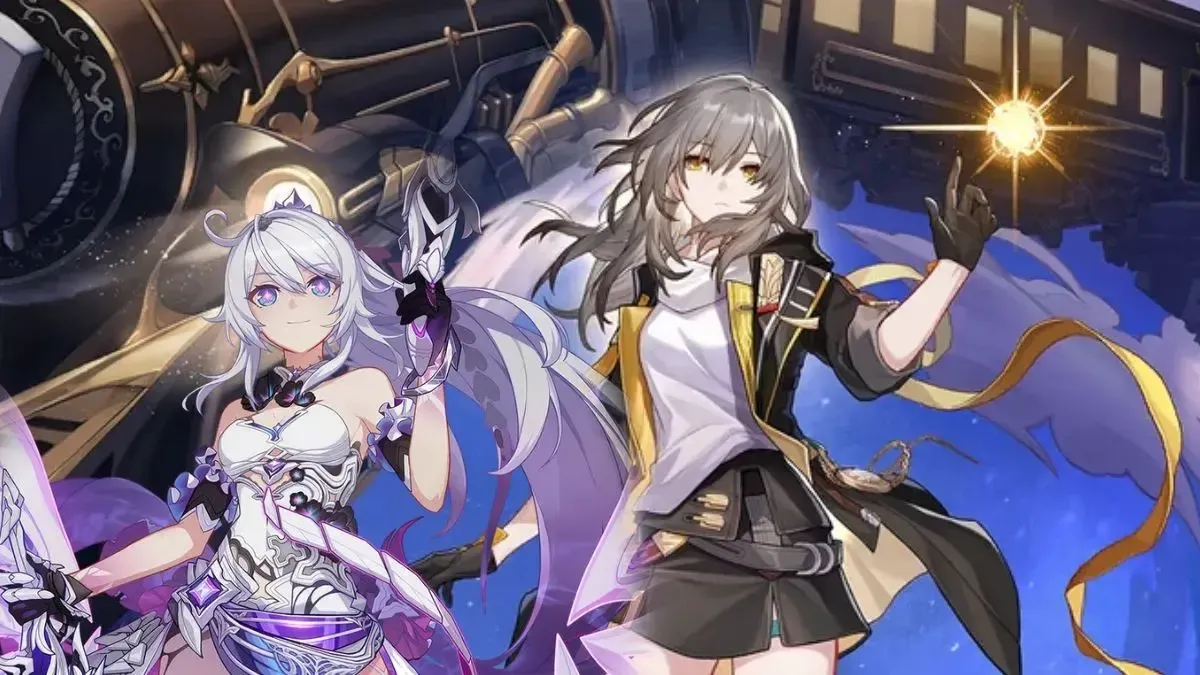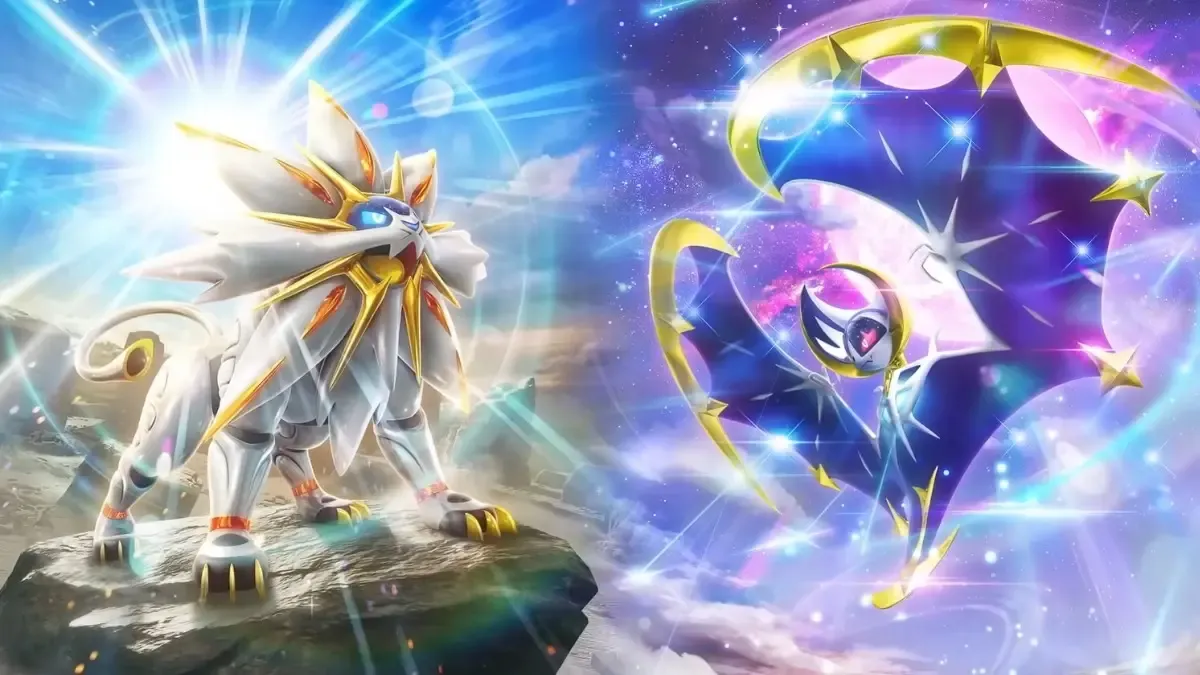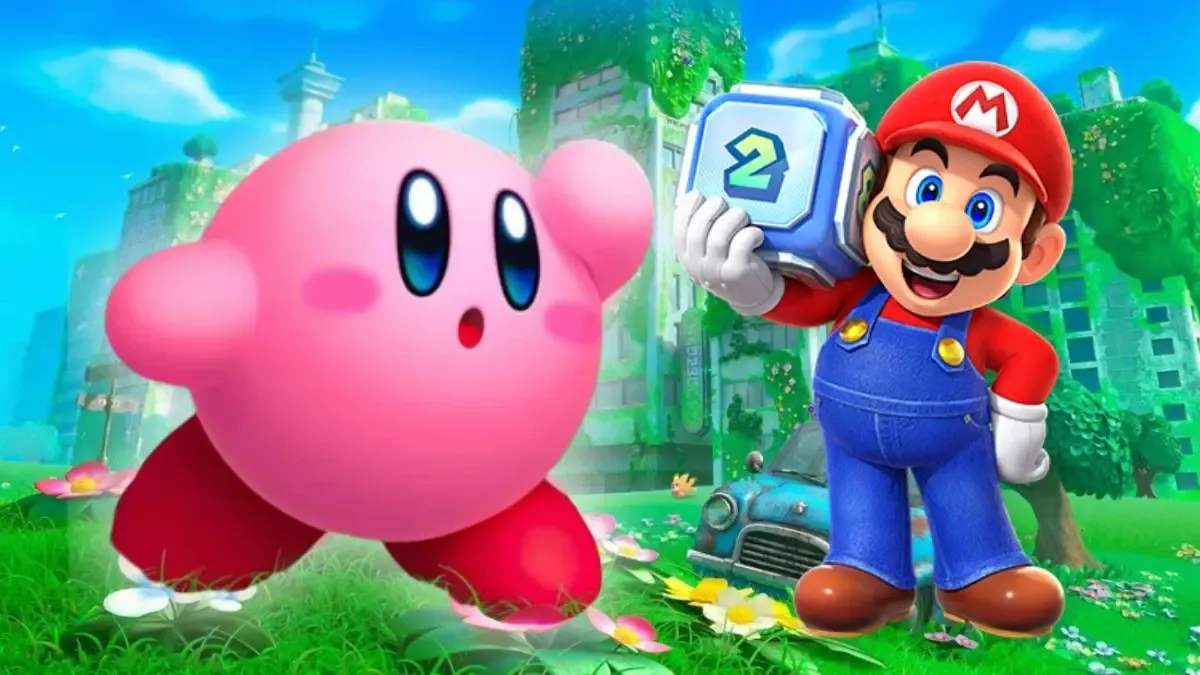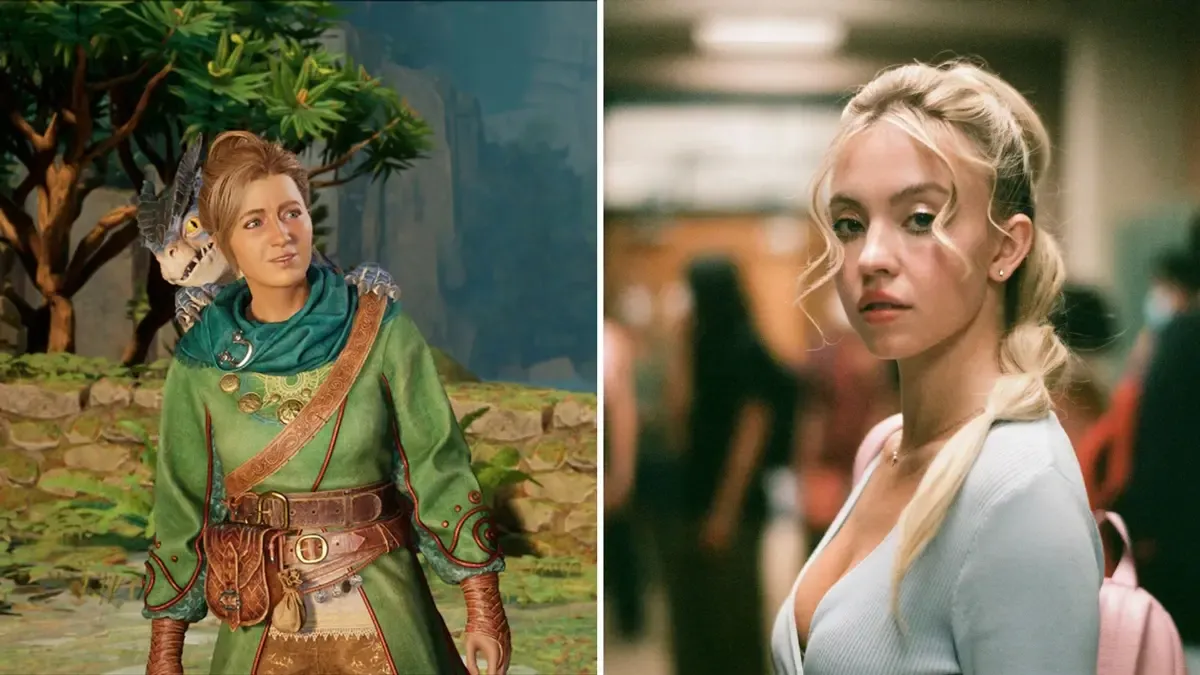We’re retracing the lineage of MMORPGs all the way back to their source: a little game called Ultima Online.
Gaming has evolved in leaps and bounds, but sometimes it’s easy to forget just how young this industry still is. You can trace the history of most popular game genres back to their source quite clearly, given the timeline only spans decades and not centuries. Often, you'll find that it wasn’t just one game that gave birth to an entire genre - it was an idea iterated upon for years, before finally being distilled into a singular title that would shape the games industry forever.
MMORPGs have a long and complex history because the very concept of ‘massively multiplayer online games took quite a long time to develop. If you look at the timeline of first-person shooters, you would at least see a weapon in the middle of your screen across every game in the genre. That is not the case with MMOs, but its earliest and most influential title is still easy to pick out: Ultima Online.
In the beginning, there was Zork

The keyword of MMORPGs is ‘massively’, so we’re looking at huge games with big ideas and lots of players interacting with one another. These games wouldn’t exist without the Multi-User Dungeon, otherwise known as MUD.
Created in 1978 by an Essex University graduate named Roy Trubshaw, the dungeon-crawling game MUD acted as a tribute to a text-based adventure game called Zork. Variants of MUD became popular in the 1980s, charting a path to commercialized MMORPGs by popularising the concept of online gaming.
Several companies looked at MUDs and said: “Playing games online - what a neat idea!” and tried to make money off the concept, as they are wont to do. The first MMORPGs as we know them were very expensive to play, costing reportedly $ 12 per hour to play on CompuServe. That kind of money stacks up over time, but these games were nowhere near mainstream hits due to their high cost of entry.
The first MMORPG that touted good graphics and art was called Neverwinter Nights (the 1991 game, not the 2002 BioWare game of the same name). This laid the foundation for Legends of Future Past’s debut in 1992, which introduced the idea of MMO quests and live-service DLC - of sorts. Paid administrators would oversee the game world, provide players with new quests and events, and lengthen the game’s lifespan substantially.
What a concept, but it’ll never catch on. Right?
It should be noted that all these games were developed during a time when NSFNET policies restricted commercial use of the internet, keeping companies from making too much money off of games like Legends of Future Past. The games that did come out during this time sowed the seeds of a genre, but they didn’t have a chance to really explode in popularity themselves. Not yet, that is.
Enter Ultima Online
The relaxation of NSFNET policies finally allowed game studios to put their games out on the internet for everyone to play and, as you can probably imagine, that led to quite the online gaming boom. Legends of Future Past was the first game to transition from network service providers like CompuServe to the internet, but in 1997, the first true MMORPG was born: Ultima Online. Ultima Online’s creator Richard Garriott made a game that let players role-play as anyone they wanted, and interact with each other as part of a community inhabiting the world of Britannia. Garriott himself coined the term ‘MMORPG’.
The best MMORPGs foster a very unique kind of online community. People playing together for hours on end, fighting one another, dropping by just to say hello, selling things other people need, teaching newbies the basics - that’s why you play games like these. Ultima Online was the first real taste of that, giving players the freedom to interact with one another in manners friendly and unfriendly. Britannia lived and breathed, and you could serve its inhabitants as a hero or crush them underneath your heel as a villain. Inhabiting a fantasy world online, even if it only comprised 2D sprites and backgrounds, was startlingly fresh.
And so a genre was born, and it wasn’t long before Ultima Online had competition.
The oversaturation of MMOs
Ultima Online, its successor EverQuest, and a third game - Asheron’s Call - form the Big Three that kickstarted the rise of MMOs as we know it, but the genre was still far from its peak. The majority of gamers today probably haven’t touched any one of the games we’ve mentioned so far, and why would we expect them to? We’ve only just capped off the 90s, which means that the best and most popular MMOs still hadn’t shown up yet.
By 2001, the heavily PvP-focused Dark Age of Camelot and a sci-fi game called Anarchy Online (finally a non-fantasy MMO!) vied for supremacy in the genre. We were also supposed to get a sequel to Ultima Online by this point, but Electronic Arts canceled the sequel because they feared the MMO genre was becoming oversaturated. MMOs were oversaturated in 2001. Imagine that.
A lot of players in Asia will also remember RuneScape and Phantasy Star Online, which both released around this time and cultivated strong cult followings. Another Asian MMO called Ragnarok Online launched in 2002 and dominated the region with an excess of 25 million registered users, and then came MapleStory - a 2D sprite-based MMO that players flocked to mainly because it was free-to-play with microtransactions, both of which were about to be very popular features in multiplayer videogames.
Final Fantasy XI launched in 2002, laying the groundwork for a much more popular MMO sequel in Final Fantasy XIV. Eve Online came out in 2003, still making headlines all the way into the 2010s for its obsessive playerbase, intricate in-game economy and incredibly expensive space battles. In 2003, we got the genre-defining online game Second Life, which allowed players to roleplay as characters of their own creation in a virtual world much like our own. There’s no fantasy or sci-fi involved in Second Life - only the allure of creating a version of yourself without the limitations of this mortal coil.
And now we’re in the big leagues.
Cataclysm
In 2004, Blizzard Entertainment released World of Warcraft, and it wouldn’t be an understatement to say that the games industry was never the same again. Warcraft reached heights of success the MMO genre had never seen before, to the point that the game has eclipsed its RTS predecessors to define the Warcraft franchise - and Blizzard as a whole. Warcraft couldn’t have happened without Ultima Online and all the other MMOs that came before, repackaging all of their best features in a very attractive videogame that kept people hooked for years on end.
Fun fact: Sony expected Everquest 2 to become the hottest MMO on the market upon its release, but Warcraft simply couldn’t be competed with, and so dwarfed the game in paying subscribers. Warcraft’s only real competition was RuneScape, which attracted players thanks to its free-to-play nature but didn’t make as much of a cultural impact in the long run. Warcraft used expansions to keep its playerbase content year after year, but its success also led to an explosion of Warcraft clones flooding the market.
Multiple companies saw Blizzard magically spin an MMO out of its own IP, and tried to replicate that success themselves with games like Lord of the Rings Online, The Matrix Online and Warhammer Online. A few of these were actually a lot of fun, but again, Warcraft was a colossus and it would take years before it had real competition. Games like Guild Wars and Star Wars: The Old Republic still found popularity upon launch, but it wouldn’t be until the 2010s that ‘The Big Five’ began to emerge.
The Big Five, and what comes next
The Big Five is a malleable thing. These are the games that come up in conversation when you’re trying to list out the most popular MMOs right now, and that list is in constant flux. Games like World of Warcraft, Final Fantasy 14, Guild Wars 2, Path of Exile and Black Desert Online would have once made up the list - but that would depend on the year. In 2022, Lost Ark might make the list. A few years back, The Elder Scrolls Online might have taken up a spot too.
Warcraft is no longer the monster it once was, but Final Fantasy 14 is reaching new heights of acclaim and popularity with every expansion. The genre isn’t evolving as rapidly as it used to, but it’s still changing. The big MMO boom is long behind us, and that’s mostly because multiplayer gaming is much more diverse than it used to be - but that doesn’t mean it’s sinking in popularity either. There will always be space for players who want to tackle a dungeon together, or trade loot with one another, or bonk each other’s heads with big battle axes. MMORPGs may owe their start to Ultima Online, but make no mistake: their story is far from over.

